

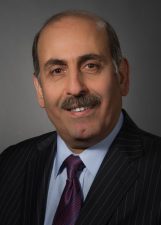
Senior Vice President and Executive Director, Neurology Service Line Northwell Health
Co-Director, Institute for Neurology and Neurosurgery
Chair of Neurology
North Shore University Hospital, Long Island Jewish Medical Center, Lenox Hill Hospital and Staten Island University Hospital
Medical Director, Center for Executive and Global Health Services
Internationally recognized for his clinical, research and teaching expertise, Souhel Najjar, MD, has dedicated his career to diagnosing and treating epilepsy of all ages, complex neurological disorders, and autoimmune disorders of the peripheral and the central nervous system. As Co-Director of the Northwell’s Institute for Neurology and Neurosurgery, Dr. Najjar directs a multidisciplinary team of experts shaping the field of neuroscience. Under his leadership, the Team’s accomplishments include our hospitals’ continued preeminent rankings in US News and World Report, top accreditation by the National Association of Epilepsy Centers and The Joint Commission and NYS Accreditation of 2 Comprehensive Stroke Centers, 15 Department of Health Primary Centers; creating the first of its kind inpatient Parkinson’s Program, and developing our Memory Disorders and Headache Centers. Founder of the Autoimmune Brain Disorders and Autoimmune Encephalitis Center, he is internationally recognized for his expertise in diagnosing and managing complex CNS autoimmune disorders attracting patients from all over the world. Serving as Chief Medical Director for the Center for Executive and Global Services, Dr. Najjar brings our world-class practices to medical professionals worldwide.
Education
MD – Damascus University Faculty of Medicine
Residency
Anatomic/Clinical Pathology – Albany Medical Center Hospital; Neurology – Albany Medical Center Hospital
Fellowship
EEG/Epilepsy – New York University; Neuropathology – New York University
Board Certification
Neurology – American Board of Psychiatry/Neurology
Research Interests
Neuroinflammation and Epilepsy; Neuroinflammation and Psychiatric Illnesses; Autoimmune Encephalitis
Professional Recognition
Top Doctors, New York Magazine, 2010-2021; Medal of Honor, Ellis Island Honors Society, 2020; Renaissance Award, Wagner College DaVinci Society, 2019; Maxwell J. Schleifer Distinguished Service Award, Exceptional Parent Magazine, 2015
Professional Membership
Medical Advisory Board Member, Autoimmune Encephalitis Alliance, Durham, NC; Board Member of Scientific Planning Committee, Psychoimmunology Expert Meetings, Günsberg, Germany; Co-Director, Scientific Planning Committee, Autoimmune Encephalitis Alliance
Publication
Pollak TA, Lennox BR, Najjar S, et al. Autoimmune psychosis: an international consensus on an approach to the diagnosis and management of psychosis of suspected autoimmune origin. Lancet Psychiatry. 2020 Jan;7(1):93-108. doi: 10.1016/S2215-0366(19)30290-1. Epub 2019 Oct 24. Erratum in: Lancet Psychiatry. 2019 Dec;6(12):e31. PMID: 31669058.
Specialty
Neurophysiology; EEG/Epilepsy; Neurology
Clinical Focus
Neurology; EEG/ Epilepsy; Clinical Neurophysiology; Autoimmune Disorders of the Central Nervous System
Hospital Affiliation
North Shore University Hospital; Lenox Hill Hospital; Staten Island University Hospital; Long Island Jewish Medical Center
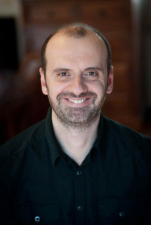
Research in Dr. Agalliu’s laboratory is focused on understanding the cellular and molecular mechanisms that regulate formation of the blood-brain barrier in the central nervous system ( CNS) and the mechanisms of neurovascular barrier breakdown in a variety of CNS diseases such as stroke and autoimmune diseases having symptoms that include blood-brain barrier failure, using a variety of genetic, molecular, cellular and imaging approaches.
We have developed novel mouse strains that allow us to visualize changes in structural components of the blood-brain barrier, namely tight junctions and caveolae, in living animals for several CNS diseases (e.g. stroke and multiple sclerosis) in order to understand the cellular mechanisms underlying barrier impairment in these neurological disorders. In addition, we are investigating the role of Wnt/β-catenin signaling in development of the CNS vasculature and formation of the blood-brain barrier, and we are exploring the role of this pathway in repairing the barrier in diseases where its function is compromised (e.g. stroke and autoimmune disorders).
Finally, we are investigating the mechanisms of immune cells entry into the CNS in a novel animal model for a neuropsychiatric disorder caused by multiple Streptococcus pyogenes infections, in order to understand how immune cells induce neurovascular, synaptic and behavioral deficits in the brain.
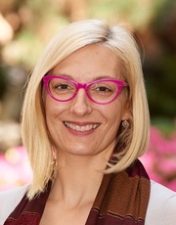
Fabienne Brilot-Turville is a neuroimmunologist and Principal Research Fellow at the University of Sydney. She heads the Brain Autoimmunity laboratory within Kids Neuroscience Centre at Kids Research at the Children’s Hospital at Westmead. Her research interests are the detection and role of autoantibodies in brain immune-mediated diseases including brain demyelination and movement disorders. Fabienne also heads the Brain Autoantibody Testing Referral Centre which provides autoantibody testing for diagnosis purposes.
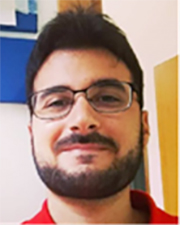
Giovanni Cacciaguerra, born in 1991, obtained his degree in Medicine and Surgery from University of Catania in 2017.
Since 2019, he is a resident doctor in Pediatric School of Catania and collaborates with Professor Pavone in the field of PANS / PANDAS research.
His major interests of study include neuropediatrics, neurodisabilities ,neonatology and gastroenterology.

Antonella Gagliano completed her first degrees at the University of Messina (Sicily- Italy) in 1995 and her PhD at the University of Naples Federico II in 1999. She was Assistant Professor of Research in Child and Adolescent Neurology and Psychiatry Unit, Department of Human Pathology “Gaetano Barresi”, University of Messina since Jan 1999 to Oct 2018. She worked as Consultant in Child and Adolescent Psychiatry at the “Azienda Policlinico Universitario G. Martino –Messina- Sicily- Italy” since Jan 1999 to Oct 2018, where she was the head of Child and Adolescent Neurology and Psychiatry Unit , since April 2015 to June 2018. She also was the coordinator of degree course in “Terapia della Neuro e Psicomotricità dell’età evolutiva” since March 2010 to May 2018. In 2011 she moved to the Ninewells’ Hospital and Medical School in Dundee, Scotland, where she worked under the supervision of Professor Professor David Coghill at Developmental Research Group for one year. Currently, she is Associate Professor of Child Neuropsychiatry at the Department of Biomedical Science, University of Cagliari, Sardinia, and she works as consultant in Child & Adolescent Neuropsychiatry Unit & “Antonio Cao” Paediatric Hospital, “G.Brotzu” Hospital Trust. She is a child and adolescent psychiatrist and researcher with a particular interest in ADHD, Specific learning disorder, Autism Spectrum Disorder, PANS/PANDAS and educational and psychopharmacological treatment.
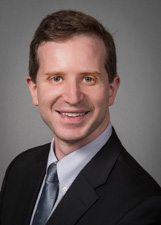
Neurologist, Northwell Health Physician Partners
Director of the Multiple Sclerosis Center, Lenox Hill Hospital, Northwell Health
Asaff Harel, MD, MSc is a board certified attending neurologist at Northwell Health Physician Partners. He is the Director of the Multiple Sclerosis Center at Lenox Hill Hospital/Northwell and sees patients both in Manhattan and Manhasset. Dr. Harel received his medical degree from the University of Pittsburgh School of Medicine where he was elected a member of the Gold Humanism Honor Society and a Howard Hughes Medical Institute Fellow. He completed a neurology residency and a multiple sclerosis fellowship at Mount Sinai Hospital, funded by the National Multiple Sclerosis Society Institutional Clinical Training Award and the NIH. Dr. Harel has extensive research experience in the field of MS and related conditions, with an interest in improving clinical care of people with such conditions. He is currently running both internal and multi-center Phase III clinical trials.

I am a pediatric rheumatologist with a Master’s of Science Degree in Clinical Research whose activities include patient care, fellowship education, and clinical research. My research interests include neurologic manifestation of systemic autoimmune disorders (primarily SLE, APS, vasculitis, and autoimmune encephalitis). My interest in immuno-neurology has led to a secondary appointment in the child neurology division at BCM.
I have received grant funding and research awards for pilot research studies. I am the pediatric rheumatology program director and co-lead a national pediatric rheumatology mentoring project. Locally I am involved in the TCH Dept. of Pediatrics Fellows’ College.
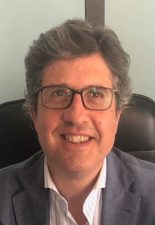
Prof. Piero Pavone, MD, PhD, Pediatric Neurologist, and Associate Professor of Pediatrics and Chief Medical Officer Pediatrics and Emergency Medicine of Vittorio Emanuele Hospital, Catania, Italy. Professor Pavone completed his medical training at the University of Catania, Italy.
His main research area is pediatric neurology and movement disorders. Dr. Pavone has published over 200 papers in renowned journals, and has also contributed to the peer review of more than 40 journals. He has secured over 5 major competitive research grants. He has served the editorial boards of different scientific journals.
His chief areas of interest are childhood neurology and neurosciences including PANDAS/PANS disorders. His interest lies in neurological disorders and improvement of quality of life for children demonstrating psychiatric co-morbidity, cognitive impairment, depression, anxiety and other emotional disturbances. Department of Medical and Pediatric Sciences
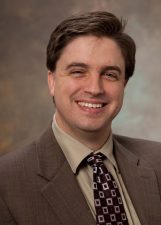
Chris Pittenger earned his MD and Ph.D. degrees from Columbia University, where his graduate work was done with Nobel Prize recipient Eric Kandel. He returned to Yale University, his undergraduate alma mater, for residency and research training in psychiatry in 2003. He joined the faculty as an Assistant Professor in 2007 and is now a tenured Associate Professor and Assistant Chair for Translational Research in the Department of Psychiatry.
During his Ph.D. studies in basic neurobiology, he became fascinated by the brain’s ability to go on autopilot — to perform complex series of actions or thoughts, after sufficient rehearsal, with almost no conscious effort. Then, during his clinical training, he recognized how this process, when disrupted by disease, can lead to the maladaptive and disruptive automaticity seen in many neuropsychiatric disorders. His research, both with patients and in animal models, aims to elucidate the mechanisms of learned automatic behaviors and to better understand the consequences when they go awry, with the ultimate goal of developing new understandings and better treatments for a variety of neuropsychiatric conditions.
Dr. Pittenger’s research and clinical work have been acknowledged by a number of prestigious awards, including grant funding from the National Institute of Mental Health, the National Institute of Neurological Disease and Stroke, NARSAD, the Tourette Syndrome of America, the Doris Duke Charitable Trust, and other organizations. He has won several honorific awards, including from the National Institute of Mental Health, the Society for Neuroscience, the American College of Neuropsychopharmacology, the American Psychiatric Association, and the American College of Psychiatrists. He is a member of the Scientific Advisory Board of the International OCD Foundation and Chair of both their Grant Review Committee and their Annual Research Symposium Planning Committee. He is a Fellow of the American College of Neuropsychopharmacology, the American Psychiatric Association, and the American Neurological Association.
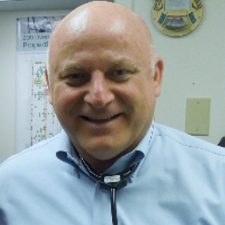
I was born and raised in Israel. I graduated Tel Aviv University medical school in 1984. I started training in pediatric and is well. I moved to the US in 1986, and continued my training in pediatrics at North Shore University Hospital. I continued with pediatric neurology training in Washington University in St. Louis and then continued with epilepsy fellowship at Miami Children’s Hospital.
I was a physician at Walter Reed Army Medical Center, Georgetown University Hospital, University of Oklahoma and Sinai Hospital in Baltimore.
My main field of interests are epilepsy, autism, and autoimmune brain disorders. In the last 15 years I’ve been treating patients with PANDAS, PANS as well as patients with early and late autistic regression.
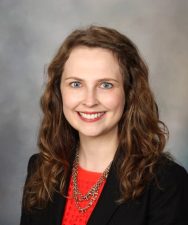
Dr. Julia Shekunov is a board-certified child and adolescent psychiatrist and Assistant Professor of Psychiatry at Mayo Clinic in Rochester, Minnesota. After completing her medical education at Mayo Medical School, she trained at McGaw Medical Center of Northwestern University for General Psychiatry residency and then completed her Child and Adolescent Psychiatry fellowship at Massachusetts General Hospital and McLean Hospital. Her clinical and research interests are focused on acute psychiatric treatment of children and adolescents.
She is Medical Director of Mayo Clinic’s child and adolescent inpatient psychiatric unit, as well as of the Pediatric Transitions program, a day treatment program. Additionally, Dr. Shekunov is a dedicated educator and serves as Associate Program Director of the Child and Adolescent Psychiatry fellowship at Mayo Clinic. In her free time, she enjoys time with her husband and two sons, traveling, eating good food, and being outside.
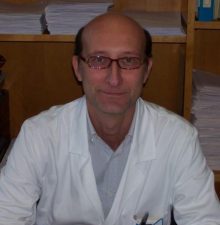
Prof. Alberto Spalice, MD, PhD, Pediatric Neurologist, and Associate Professor of Pediatrics and Director of Pediatric Neurology Division at the Azienda Policlinico Umberto I, Università “La Sapienza” of Rome – Department of Paediatrics. With a Masters in Pediatric Immunology, he is also Course Director of Pediatric Nursing and Pediatric Immunology.
He’s an active member of the following professional associations: a) the Italian Society of Paediatrics (SIP) b) the Italian Society of Neuropediatria (SINP) c) Italian League against Epilepsy ( LICE) d) Italian Association of Neuroradiologia (AINR) e) Italian Society of Clinical Neurophysiology, and f) Study group of Pediatric.
Dr. Spalice has participated as a collaborator in research projects for Ministero dell’Università e della Ricerca Scientifica, CNR Projects, and Projects of the Ministry of Health (Oncology and Pediatric Gastroenterology). He is an expert in rare diseases in childhood: clinical study, genetic, metabolic and neuroradiology, and nervous system disorders. He has published research from 1990 to present totals 348 publications of which 83 are in international journals, 52 in national journals, 105 abstracts at national conferences, 58 abstracts at international conferences.
Since 2011 he is an active PANS PANDAS practitioner, and primary research collaborator for the PANDAS Italian ODV, the Parent Organization for PANS PANDAS in Italy. Since 2014 he has published 15 works on PANS PANDAS for scientific journals. He has participated in structuring various projects of the Association and since 2014 has spoken at international conferences on this disease model. He is a founding board member of EXPAND, a European consortium, consisting of PANS/PANDAS specialists from various scientific societies including neuropsychologists, psychotherapists and school professional specialists in Italy.
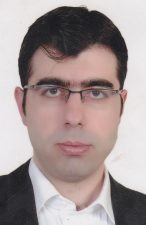
Ayman Alboudi received his medical degree from the University of Tishreen in Syria and obtained advanced training in Neurology at University of Damascus. He is a member in the Royal College of Physicians in London. He spent several years as neurology Faculty in Dubai Health Authority, and a teaching faculty at Dubai Medical School. Ayman has many publications in different field of Neurology including multiple sclerosis, Guillain Barre syndrome, and stroke.
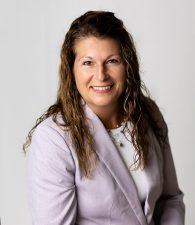
Christy Jagdfeld is a CPA who resides in the Lake Country area of Wisconsin. She became a fierce patient advocate after her youngest child was diagnosed with several chronic illnesses in 2012.
Jagdfeld worked for six years as a volunteer and eventual Board Member/Treasurer, of Dysautonomia International (2014-2020). During that time, she organized a local 300 person annual awareness event, a 5K and a successful 300 patient and clinician seminar on POTS & Dysautonomia held at St. Luke’s in Milwaukee. She was co-chair of the Dysautonomia International Wisconsin Support group with 1000+ members and helped organize monthly in-person meetings, many with speakers. She attended local conferences and also spoke at local events. On a national level, she helped with fundraising, networking, attended professional conferences and many business aspects of the organization. She credits that experience to learning many of the ins and outs of volunteering with a non-profit and hopes to bring that experience to PANDAS Network as the organization continues to grow.
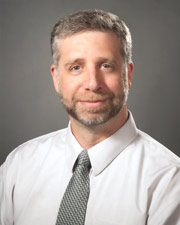
Paul Mattis, Ph.D., ABPP-CN is the Chief of Neuropsychology within the Department of Neurology at North Shore University Hospital/Long Island Jewish Medical Center. He is also the Director of Neuropsychology Training, Department of Neurology, and Associate Director of the Clinical Neuropsychology Internship Track.
Dr. Mattis obtained his Ph.D. in Clinical Neuropsychology at the University of Houston. He completed his clinical internship within the Pediatric Neuropsychology/Family Crisis track at North Shore University Hospital, and his postdoctoral fellowship was completed within the Department of Neurology at Stony Brook University Hospital. He returned to the North Shore University Hospital in 1996. He is board certified in clinical neuropsychology through the American Board of Professional Psychology.
Dr. Mattis’s clinical work continues to be lifespan, working with individuals across the developmental spectrum. Within the Neuroscience Institute of the Feinstein Institute for Medical Research, his research has focused on the relationship between cognitive functioning and metabolic brain networks using FDG-PET in Parkinson’s disease and Alzheimer’s disease. He holds the rank of Associate Professor of Neurology at the Donald and Barbara Zucker School of Medicine at Hofstra/Northwell.
Dr. Mattis has served in multiple national and New York state leadership roles. He is currently a member of the board of directors of the New York State Association of Neuropsychology, but previously served on board of directors of the American Academy of Clinical Neuropsychology and served as a board memory and President of the Association for Internship Training in Clinical Neuropsychology and the New York Neuropsychology Group.
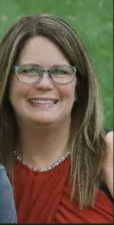
Graduated with an MSW from the University of Minnesota, Twin Cities, USA in 2003, Lisa has worked in numerous community agencies, school settings, and governmental entities. Employed in the child welfare industry for over 16 years, providing advocacy and support while investigating cases of child abuse.
In 2021, Lisa opened a solo private practice, supporting children, adolescents, adults and families, located in Minneapolis, Minnesota, Counseling Connection, LLC. This practice includes supporting parents and their children with a diagnosis of PANS/PANDAS.
On a personal level, Lisa understands the reality of what it means to struggle, support and parent her own young child with PANDAS, while holding a fiercely positive space for her child to thrive. This illness isolates families, when they urgently need medical supports and advocacy. Together, we build upon each others strengths, scientific knowledge to increase awareness and engulf families with support.
Education/Training
Registered with the Minnesota Board of Social Work as a Licensed Independent Clinical Social Worker and approved Clinical Supervisor.
Parent Coach Certification (2019)
Emotional Freedom Technique/Tapping, Level Two Completion (2021)
Professional Membership: Minnesota Clinical Social Worker Association; National Association of Social Workers.
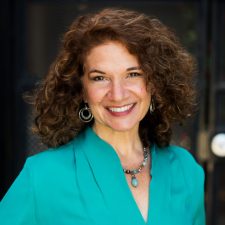
Founded in 2009, Diana has built PANDAS Network (PN) from the ground up by developing stakeholder outreach, marketing and collaborating with healthcare experts. PN has grown from the story of her one child and the outstretched hand of another mother from Illinois that has traveled this path as well. Together, they discussed their paths from treatment to healing, which has now grown to thousands of families worldwide.
In 2013, PN was honored to be chosen as a National Institute of Mental Health Outreach Partner. PN continues to be the leader in driving awareness of this emerging encephalitic illness (PANDAS/PANS). The primary initiative of PN has been to lead the investigation in early research of the PANDAS/PANS diseases with seed-money grants funded by families. This has proven to be a critical step in the growing recognition of this illness. Research from each Center of Excellence in the U.S. indicates that the blood–brain barrier is impacted by the autoimmune system in PANDAS/PANS—and this promises to open, forever, new pathways into brain science. Secondly, as executive director, Diana has driven the growth of awareness through the organization and support of national and international conferences (beginning in 2011 in California) to the latest conference, “Common Threads Among Post Infectious Autoimmune Diseases of the Brain” (Columbia Univ. 2018) that was attended by 800 persons and received national media attention (NBC News). Building community is the driving force of PN leadership in the field. PN will continue to lead in the expansion of interdisciplinary dialogue

Kelly Wexlar serves as Program Director for Northwell Health’s Neurosciences. Kelly leads the program’s Continuing Medical Education and community outreach events throughout New York. She also builds Northwell Neurosciences’ presence in our medical and patient communities through marketing, PR, corporate partnerships, and various initiatives across the health system.
Receiving an M.B.A from Fordham University, Kelly previously worked at The Boston Consulting Group for the firm’s global Private Equity and Principal Investors group. Kelly is deeply passionate about bringing diverse perspectives to neurosciences and committed to further innovating the department by leveraging new thought leadership and cutting-edge technologies shaping the field.